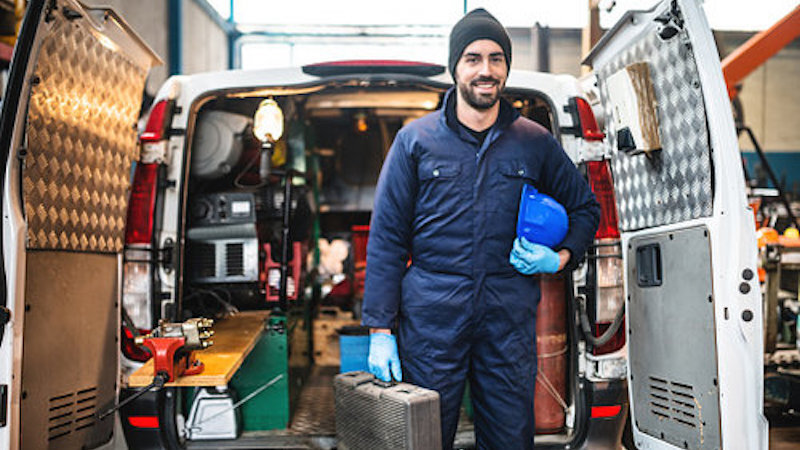Connecting...
What is an HVAC Service Engineer?
about 9 years ago Empty Jason Thornhill

We’re often asked for more information about the various jobs available in the HVAC industry, so we’re running a series of blogs looking at the day-to-day activities of different roles, as well as the qualifications and attributes needed to fulfil them.
Our series continues here with a look at the role of an HVAC service engineer. For details of other jobs, see the links at the bottom of the page.
Job description
An HVAC service engineer finds faults, carries out repairs and maintenance, and services and tests HVAC units and systems. There may also be some installation work involved.
The role can be crucial in preventing critical issues with HVAC systems that can lead to major problems such as Legionnaires’ disease.
Work can be undertaken on a wide range of commercial, industrial and residential sites such as offices, hotels, food and drink venues, leisure centres and schools.
Day-to-day activities
An HVAC service engineer’s daily tasks can include troubleshooting and fixing boilers, ventilation and air conditioning service equipment.
Many service engineers work from home and are provided with a company van, mobile and laptop. During a typical day, they would carry out site visits to meet with clients, undertake repair and maintenance work, and order parts.
They will also liaise with other professionals working on the site, as well as with their sales colleagues.
Qualifications
An NVQ or City and Guilds in an HVAC-related field or equivalent experience is required.
An HVAC certification is a necessity. For Air Conditioning Engineers, an F Gas Certificate is essential to work on equipment that contains fluorinated greenhouse gases (F Gases). These gases are used in refrigeration, air conditioning and heat pumps.
Heating Service Engineers need to achieve an ACS or S/NVQ equivalent qualification in the area of heating the want to work and then join the Gas Safe Register.
Engineers tend to focus on either Air Conditioning & Refrigeration, Domestic Heating or Commercial Heating. The large FM companies tend to have multi skilled engineers who will have their FGAS ticket, their Commercial Gas tickets and their 17th Edition electrical qualification.
A driving licence is essential as the role involves frequent site visits.
Skills and attributes
HVAC service engineers need excellent problem solving skills, technical ability and IT knowledge. The role requires experience and knowledge of testing, repairing and operating HVAC systems, as well as the ability to learn about new ones.
They often meet clients and other contractors face-to-face so a personable approach, as well as good communication and customer skills, is vital to the role. An HVAC service engineer works both alone and as part of a team, so also needs to be able to interact well with colleagues. They need to be confident working unsupervised on their own initiative or as part of a team.
Because many HVAC service engineers work from home, they also need to be self-motivated and proactive. They will be required to travel and work unconventional hours, so need to have a flexible attitude towards this.
Earning potential
HVAC service engineers typically earn £25,000 – £35,000 basic salary, depending on experience and the level of the role. They usually also receive a range of additional benefits including performance-related bonuses and the option to work overtime.
Job satisfaction
Working as an HVAC service engineer can be varied and interesting. It is a very hands-on role and involves meeting with a variety of people, from other professionals to customers.
But the work hours can be long and service engineers are often on a call-out rota. They may also be required to work away from home, all of which can be disruptive to their home life.
Training and career development opportunities can be good, with the chance to progress into a supervisory role. Rewards and promotions are often available for those who deliver good work.
Find out more
If there’s something you’d like to know about the role of an HVAC service engineer that we haven’t covered here, we’d be happy to help further. Or we could point you in the direction of HVAC service engineer roles available right now. Call us on 0115 8714 777.
